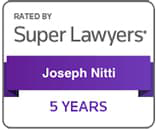Many paths to homeownership exist. Purchasing a single-family home may work best for some people. For others, alternative options, such as co-op housing, seems more appealing. In this scenario, the homeowner becomes both a tenant and a shareholder of the company that owns the property.
The New York City Bar explains that co-op owners contribute to the maintenance of the property by paying a monthly fee. The fee may also cover the property taxes and the building’s underlying mortgage. A board of directors elected by shareholders manages the company and the board must abide by the proprietary lease in place.
Foreclosure or eviction
Owning shares in a co-op is not quite like owning a home outright or even with a mortgage. Because of this, if the co-op wishes to remove a tenant, it follows procedures more similar to eviction than a foreclosure. The board decides under what conditions it may evict someone. Non-payment remains a top reason, but objectionable conduct is another possibility.
Comparison to condos
Co-op housing offers a taste of homeownership for buyers getting their feet wet in the market. They are especially helpful for people who are saving up to purchase a condo and want to get a taste for what living in one feels like. Condos operate similar to co-ops, but when buyers invest in a condo, they buy an individual piece of the property, instead of a share in its general ownership.
HGTV warns buyers to think carefully before investing in a co-op. It recommends paying close attention to the company’s financial documents and reading the bylaws carefully to ensure lifestyle compatibility.
